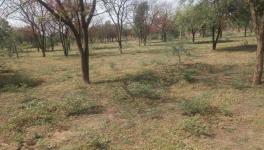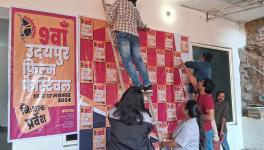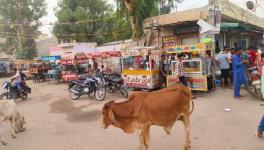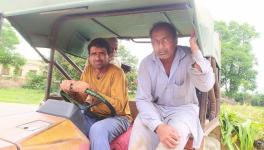Boycott of 72 Dalit Families is a Stark Reminder of Failing Administration, Say Activists
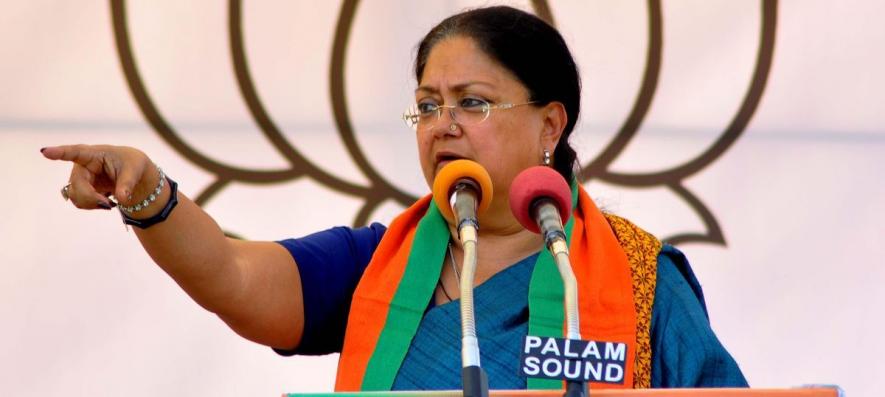
In a shocking revelation, 72 Dalit families from Kanudi village in Rajasthan's Barmer district reportedly alleged social boycott by dominant Rajpurohit families. The incident came to light after a resident, Dana Ram Meghwal, alleged in his complaint with the police that their families have not only been denied the access to the common wells of the village, but their children are being stopped by the Rajpurohits from attending the school.
The matter flared up when some young boys from Rajpurohit community wrote expletives on August 16 on a social media website about the Dalits living in the area. Enraged by the abuses, Rawat Ram, a resident of neighboring Baiti village, registered a case against the accused under SC/ST Prevention of Atrocities Act. In their response to the incident, Rajpurohits conducted a local panchayat, and took a decision to boycott Dalit communities living in the village. The affected families alleged that they are compelled to live like prisoners in their own houses. While the administration has initiated action after much pressure, the tension still prevails in the locality.
However, this is not the first incident when Dalits have been subject to large-scale social exclusion and discrimination amid growing assertion of self-respect and dignity. In another shocking incident, Uday Lal, belonging to Dalit Regar community, was forced off his horse during a wedding ceremony in Bhilwara. The family responded by registering a case against the accused, and got 12 men arrested. The family had to pay a heavy price for raising their voice. The people belonging to the dominant Gujjar caste reportedly stopped the supply of drinking water to the victim families. When they called for drinking water through tankers, the drivers alleged that they were threatened by Gujjars.
The prevalence of similar incidents could be gauged from the fact that Bharatiya Janata Party (BJP) government, in its reply to a question in the Vidhan Sabha, accepted that at least 34 such incidents have taken place in previous year in the state. This apart, the incidents of burning down of house of Bharoshi Jatav, a former minister during April 2 Bharat Bandh protest, and rape and murder of Delta Meghwal remain a stark reminder that Dalit atrocities remain unabated in the state.
Delta Meghwal, 17-year-old student of veterinary sciences, was found dead in water tank at her institute in Rajasthan's Bikaner in March 2016. Meghwal, prior to her death, had allegedly complained to her father that she was raped by her physical training teacher. Under much pressure from Dalit and civil society groups, the Rajasthan government ordered an enquiry by the Central Bureau of Investigation (CBI), but the probe appears to be stuck even after two years of crime. The father of the girl, frightened by the incident, discontinued the studies of two other children.
The increasing incidents of atrocities on Dalit are corroborated by the data of National Crime Records Bureau. Crime in India 2016, the annual report prepared by the Bureau, states that Rajasthan remained on the third position with the highest number of crimes committed against the Dalits. While overall 6,537 crimes against the scheduled castes were recorded in 2016, the numbers have shot up with 27 per cent increase in early three months this year.
The activists emphasise that the present incident must be seen in the backdrop of Bharat Bandh, when millions of Dalits hit streets after the Supreme Court allegedly diluted SC/ST Prevention of Atrocities Act. Dr Satish Prakash, a Dalit activist, says the upper castes were taken aback by the protests which broke the myth that Dalits will continue to bear atrocities without any protest. He said, "The Hindutva organisations are getting protection from BJP governments. First, they commit crimes. When Dalits respond by taking measures mandated by the Constitution, they threaten the administration by organising them in large numbers."
Echoing similar sentiments, Amra Ram, former legislator and member of CPI(M) delegation, which had met April 2 Bharat Bandh victims, said that the failing administration of Chief Minister Vasundhara Raje Scindia could be gauged from its approach when it refuses to meet delegations of farmers, but is available anytime to the delegations of various castes.
He added, "Both parties have same feudal approach. The house of Bharoshi Lal Jatav was burnt to ashes by a mob which was led by Rajasthan Pradesh Congress Committee. Why it has not terminated him when four months have already passed? After April 2 Bharat Bandh, the government suspended 4,000 employees, who participated in the protests and it was only taken back when we held our mahapanchayat on July 22. This clearly shows the approach of the government."
Get the latest reports & analysis with people's perspective on Protests, movements & deep analytical videos, discussions of the current affairs in your Telegram app. Subscribe to NewsClick's Telegram channel & get Real-Time updates on stories, as they get published on our website.










